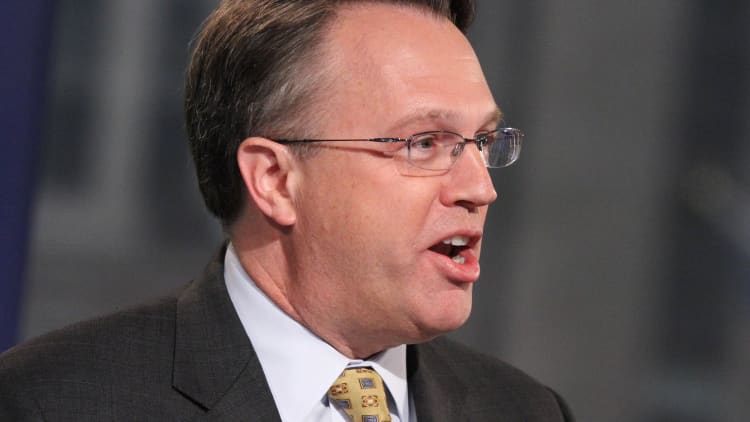Even with this year's correction, stocks and other assets are still high by historical standards, Fed Governor Lael Brainard said in a speech Tuesday.
Speaking shortly after the stock market closed and reversed some of the steep losses from Monday, Brainard became the latest central bank official to express caution about the level of the 9-year-old bull market.
"Valuations in a broad set of markets appear elevated relative to historical norms, even after taking into account recent movements," Brainard said during a speech in New York, according to prepared remarks.
Prices for multi-family homes and commercial real estate also have risen, while capitalization rates, a key determinant for how properties are performing value wise, "have reached historical lows," she added.
In addition to stocks and real estate, Brainard also issued a warning about cryptocurrencies like bitcoin, which have seen huge price declines this year after soaring in 2017.
"These markets may raise important investor and consumer protection issues, and some appear especially vulnerable to money-laundering ... concerns," she said. "As in other highly speculative markets, individual investors should be careful to understand the possible pitfalls of these investments and the potential for losses."
The Federal Reserve, where Brainard is considered one of the bigger proponents of low rates, has been slowly tightening policy as officials look to keep the economy from overheating. Since December 2015, the Fed has approved six quarter-point hikes for its benchmark interest rate, the most recent being in late March.
Along with her warnings about potential overvaluations in markets, Brainard said Fed policy has helped stem the type of excessive risk-taking that led to the financial crisis of 2008.
For instance, she said stock market valuations don't look so bad compared to the still-low level of Treasury yields, and pointed out that lenders appear aware of the danger for property value to reverse.
She also said there are few signs that crypotcurrencies would pose a widespread threat to the financial system.
"Despite elevated asset valuations, overall risks to the financial system remain moderate in no small part because important financial reforms have encouraged large banking institutions to build strong capital and liquidity buffers," Brainard said.
However, she seemed to caution about the push for cutting back on some of the post-crisis financial reforms.
"In the wake of the 2007-09 financial crisis and recession, we learned important lessons about the critical necessity of monitoring emerging financial vulnerabilities in a systematic fashion and taking corresponding prudential, macroprudential, and countercyclical policies to build resilience," she said.
WATCH: NY Fed names John Williams president



